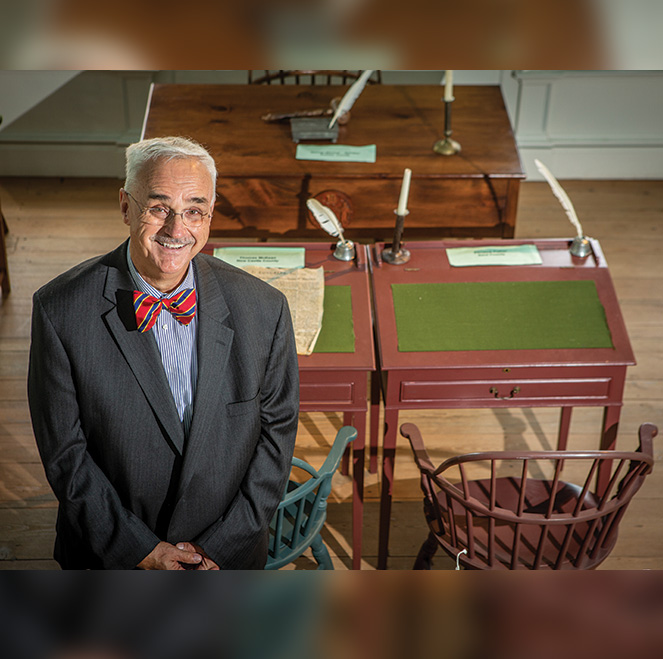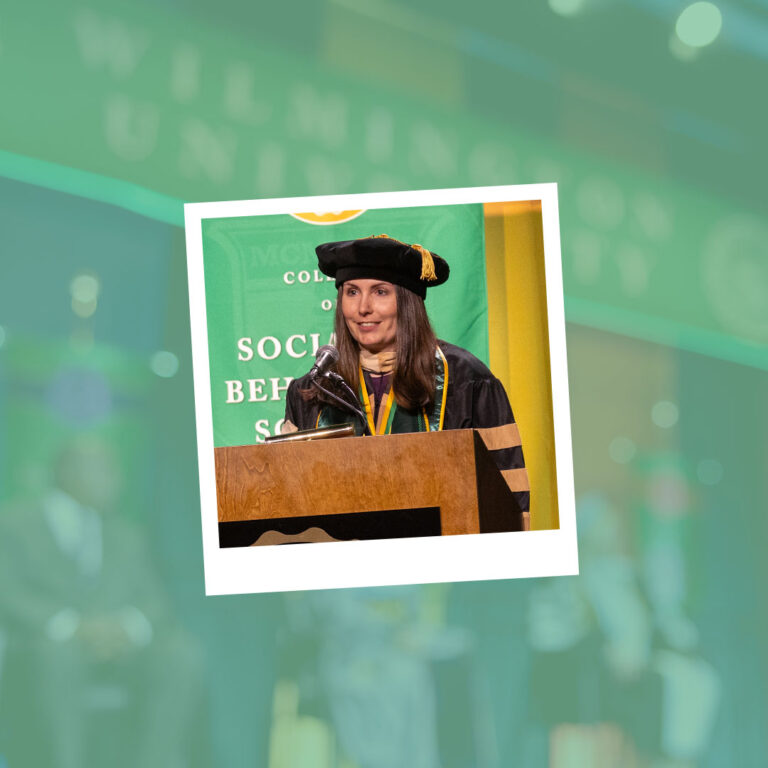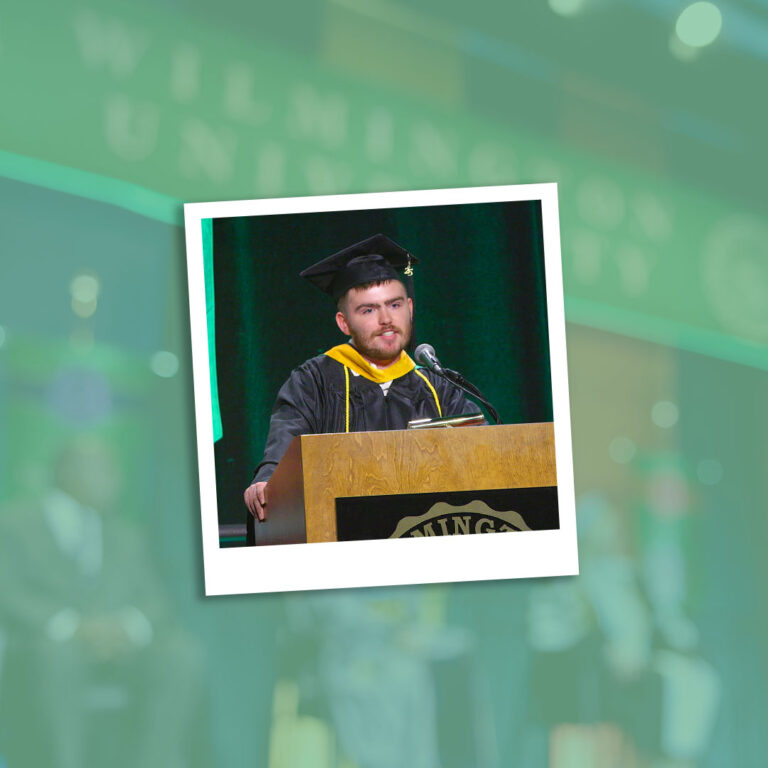History with Purpose


Wilmington University Adjunct History Professor Michael Dixon is deeply committed to studying local and regional history. His passion, he says, is ignited when he shares his knowledge with students and the community.
Fortified by graduate degrees in History and Behavioral Sciences, Dixon brings his extensive research and love of history to the classroom. He’s also a visiting scholar for several humanities councils and other organizations.
A board member of the Hosanna School Museum in Harford County, Maryland, Dixon offers expertise for several projects, including “The Untold Stories of African Americans in the Lower Susquehanna Region.” Funded by a Greenways grant, the book chronicles African Americans on the Lower Susquehanna River and includes a digital story map reflecting the region’s cultural heritage. The book is expected to be published this year.
“Most African American history along the Susquehanna is undocumented, so this is an attempt to fill that gap,” Dixon says. “There are plenty of traces from the past, going back to the Underground Railroad and the pre-Civil War era, that still exist in that region. And this project seeks to fill that gap with a print publication and interactive website.”
There are plenty of traces from the past, going back to the Underground Railroad and the pre-Civil War era, that still exist in that region. And this project seeks to fill that gap with a print publication and interactive website.”
-Michael Dixon
According to its website, the Hosanna School Museum, based in Darlington, Maryland, celebrates African American heritage by offering historical and cultural events, including an annual Juneteenth Celebration Festival, in partnership with several community organizations. Staffers identify underground railroad sites, conduct historical tours, feature book signings, author talks, film screenings, discussions, lectures, genealogy work-shops, and youth workshops exploring traditional crafts.

In 2013, when Hosanna’s Executive Director Iris Barnes invited Dixon to join the Hosanna board, he had already worked with the group on a Smithsonian oral history project. “I was pleased to join this visionary organization whose mission is to share the rich heritage of our diverse society and foster an awareness that deepens understanding and appreciation of that diversity,” says Dixon.
Dixon draws on his fieldwork and research to create applied, practical classroom exercises. “As my students engage in active learning activities in these practical lessons, it helps them understand how the past connects with the present,” he says.

His research focuses mainly on Mid-Atlantic regional and local history. He has worked extensively over three decades to encourage public interest and participation in preserving the area’s past and creating an understanding between earlier eras and the present. His work also focused on African American history, with topics such as the role of African American physicians before the Civil Rights Movement, the struggle for social justice that took place mainly during the 1950s, and a current examination of health care before the passage of the Civil Rights Acts of the 1960s. He also has offered a discussion about the Jim Crow era and the Spanish Influenza of 1918, which swept the country and devastated America’s Black communities.
As my students engage in active learning activities in these practical lessons, it helps them understand how the past connects with the present,”
-Michael Dixon
“By helping people understand how the past intersects with the present, I encourage greater curiosity about what came before us,” says Dixon. “Also, this grasp of historical dynamics provides an important foundation for understanding the world around us today.”
—Maria Hess
To learn more about Mr. Dixon’s work, visit dixonhistory.com.



